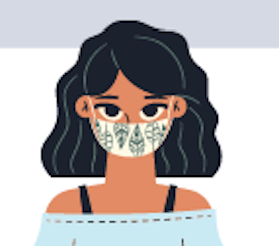Special Report: As U.S. Schools Shuttered, Student Mental Health Cratered
 With schools nationwide locked down amid the COVID-19 pandemic, the mental health consequences on students have come into a sharp focus.
With schools nationwide locked down amid the COVID-19 pandemic, the mental health consequences on students have come into a sharp focus.
Reuters surveyed school districts nationwide in February to assess the mental health impacts of full or partial school shutdowns. The districts, large and small, rural and urban, serve more than 2.2 million students across the United States.
Of the 74 districts that responded, 74% reported multiple indicators of increased mental health stresses among students. More than half reported rises in mental health referrals and counseling.
Nearly 90% of responding districts cited higher rates of absenteeism or disengagement, metrics commonly used to gauge student emotional health. The lack of in person education was a driver of these warning signs of trouble, more than half of districts said.
The stresses didn’t affect only students: 57% of responding districts reported an increase in teachers and support staff seeking assistance.
School closures have affected districts in every state. In the spring of 2020, all U.S. K-12 public schools closed, at least temporarily, to help slow the spread of COVID-19. As of February, 57% of students attended public schools that were completely or partially closed, according to Burbio, a service that tracks school openings.
Some school boards, teachers union leaders and parents still advocate full or partial school closures to protect the health of children or to prevent community spread. Yet research over the last year has shown that public schools that follow social distancing guidelines typically experience low rates of spreading COVID.
“Though outbreaks do occur in school settings, multiple studies have shown that transmission within school settings is typically lower than – or at least similar to – levels of community transmission, when mitigation strategies are in place in schools,” said a recent Centers for Disease Control and Prevention report. “The majority of cases that are acquired in the community and are brought into a school setting result in limited spread inside schools, if comprehensive mitigation strategies are in place.”
Severe cases among children comprise less than one tenth of one percent of all deaths, the CDC said. Of the 36,860 overall child deaths over the last year, 216, about a half percent, involved COVID-19.
As students stay sheltered in their homes, away from friends and teachers, other COVID-related factors can cause the stresses to cascade. The anxiety from seeing a parent lose work. The death or illness of a family member from the disease.
More than a dozen school district leaders told Reuters of students suffering silently with depression, eating disorders, neglect and emotional, physical or sexual abuse. Were students in a school setting, these warning triggers would be more easily noticed, they say.
When children do return to the classroom, some parents say they see a change.
In San Francisco, as her children struggled with remote learning, Sullivan Morgan and her husband pored over their finances. They saw there was no way they could afford private schools, which offered in-person teaching, for both boys.
In the fall, they decided to sell their house and move to Austin, where their sons could attend public school. Since January, both sons have been back in school five days a week. Her oldest is playing piano again.
“They are back to their old selves,” the mother said.
Excerpted from “Special Report: As U.S. schools shuttered, student mental health cratered, Reuters finds” on Reuters.com. Read the full article online.
Source: Reuters | Special Report: As U.S. schools shuttered, student mental health cratered, Reuters finds, https://www.reuters.com/article/us-health-coronavirus-students-special-r/special-report-as-u-s-schools-shuttered-student-mental-health-cratered-reuters-finds-idUSKBN2BB16D | © 2021 Reuters
A screening can help you determine if you or someone you care about should contact a mental health professional. Care Managers can arrange a free 30-minute Care Consultation so you can explore options with an expert. Call or email our Care Managers at 650.688.3625 or careteam@chconline.org to set up an initial Consultation appointment.





